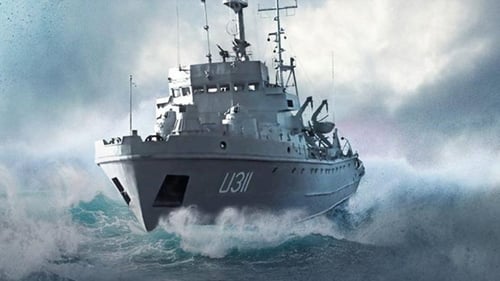Oxygen station
Gênero : Drama
Runtime : 1H 40M
Director : Ivan Tymchenko
Escritor : Mykhaylo Brynykh
Sinopse
The film is based on the biographical events of the Crimeans' leader, human rights activist, Soviet political prisoner and Nobel Peace Prize nominee, Mustafa Jemilev. Summer of 1980. Mustafa Jemilev spends a four-year exile in Yakut village Zyryanka, where he works at an oxygen station. Every day he fills rusty tanks with oxygen and rolls them to the dock. This monotonous and exhausting work makes him resembled to the mythological Sisyphus. The events happen after 300-days hunger strike, which made him known all around the globe.

At a popular vacation destination in Crimea every evening the entertainer Lyudmila Pashkova hosts "Where are you, talents?" - a friendly competition designed to amuse vacationers. Michael Gudkov, a vacationer from the northern Russian city of Murmansk, takes up the challenge performing his favorite song "My Female Sailor". In spite of a well-received performance the host did not award a victory to him. Feeling slighted Michael decides to compete every evening with his song until he gets his well-deserved prize becoming a favorite fixture of the local competition.

The film tells about the tragic date in the history of the Crimean Tatar people — May 18, 1944 — Stalin’s deportation of the Crimean Tatars. The plot of the film — a pilot, twice Hero of the Soviet Union, Amethan Sultan. In May, 1944, a year after liberation of Sevastopol Amethan goes on vacation to his native town Alupka. On May 18 his eyes witness begining of deportation of the Crimean Tatars.

Nazi-occupied Crimea, 1944. A boy named Itzhak turns to Saide Arifova, a local Tatar Muslim woman, for help, explaining that he and a group of other Jewish orphans are hiding from the Nazis. Arifova faces a moral dilemma: should she try to help them or save herself by refusing? Despite the impending danger, she decides to protect the children by hiding them in plain sight, and disguising them as Tatars and adopting them into the local community.

For the first time, this documentary includes two exclusive interviews with Vladimir Putin and full details about actions in Crimea during spring 2014. These events determined the history of modern Russia. The President talks frankly and openly about the challenges and risks that Russia faced during that time. This film provides the Russian view of the situation. It is impossible to form a complete picture of the world without it.

Whilst the first shots ring out between pro-Russian government forces and members of the opposition in the winter of 2013, young Nina leaves Crimea. She was raped by a corrupt policeman, her friend was killed, and now she seeks refuge with the protesters on Maidan Square. Revolutionary chaos prevails, and it‘s not at all clear who remains loyal to whom and which means can be regarded as legitimate in the struggle for freedom. Ultimately Nina and her tormentors come face to face again and the spiral of violence is stepped up a further notch. The film was shot to a genuine backdrop, the result of which is a multifaceted allegory on the tragedy currently playing out in the Ukraine.

A practical joke ends up very wrong in Nigina Sayfullaevas curious youth drama. Two seventeen year old Moscow girls, Olya and Sasha, are visiting Olya's long lost father who lives in Crimea, when they decide to switch places and pretend to be the other person to the father. Little do they know that their joke comes with consequenses that will change their lives forever.

A Associação dos cineastas dos documentários Babylon'13 apresenta a primeira longa-metragem sobre a anexação da Criméia pela Rússia. As filmagens originais e as histórias não-ficcionais dos marinheiros, dos pilotos, dos pára-quedistas e dos fuzileiros navais sobre o confronto resistente aos invasores podem ajudar o público a encontrar a resposta à pergunta "Por que desistimos da Criméia?". Os Autores do filme olharam para eventos históricos na Criméia através do prisma do destino dos soldados ucranianos que não traem o juramento. "A Criméia, como era" - a história das mais altas qualidades humanas: honra, fidelidade, coragem.

Documentary film about war crime — annexation of Crimea by the Russian Federation.

Baseado em uma história real. Em fevereiro de 2014, durante a ocupação russa na Península da Crimeia, o navio de guerra ucraniano U311 "Cherkasy" e resto da Marinha do país estão bloqueados no Lago Donuzlav, com o caminho para o mar fechado por uma cilada da frota russa. Sem perspectiva de vitória ou fuga, os navios começam a se render, mas o U311 "Cherkasy", última esperança de resistência ucraniana na Crimeia, decide permanecer no local e iniciar uma luta corajosa.

In 1944 Crimean Tatars has suffered a long road in exile. It was accompanied by famine, illness and loss. In the first years of exile, almost half of deported Crimean Tatars died. But those, who survived, dreamed of only one thing - to return to Crimea. The documentary 1944 tells about the tragedy of all Crimean Tatars through several separate life stories. They are cherished by each Crimean Tatar family and must be remembered by all generations to come.









